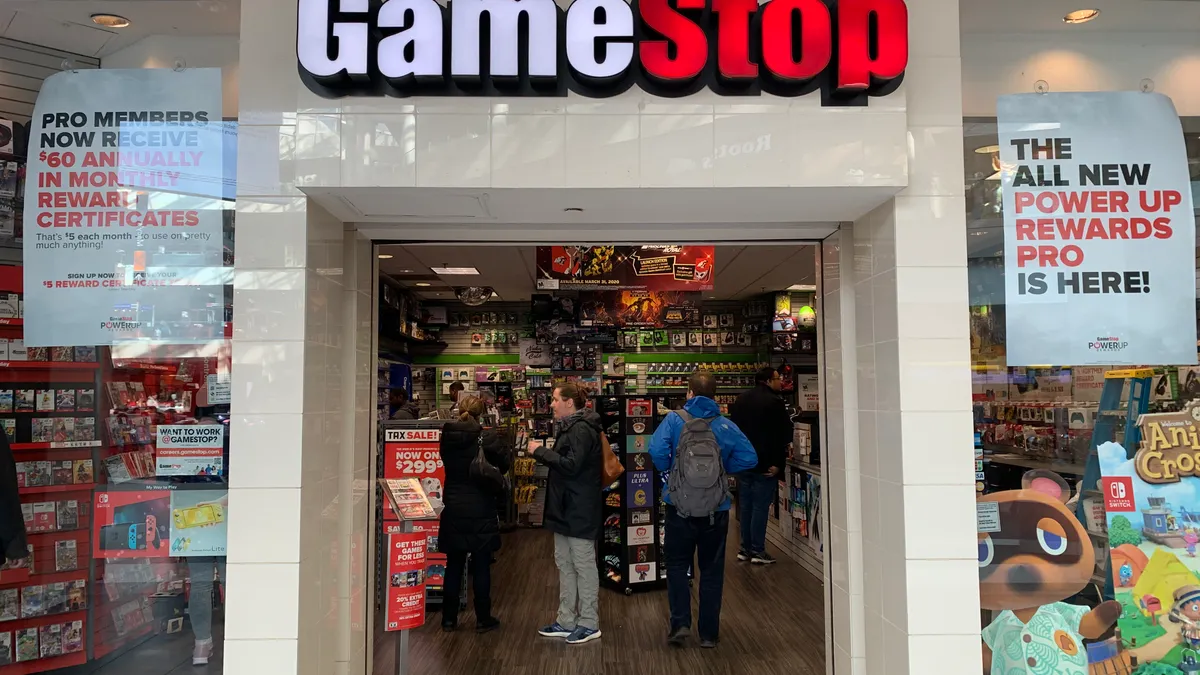Brief:
-
Video game retailer GameStop is working with developer Niantic to transform its stores into virtual destinations in the mobile app "Pokémon Go," according to news shared with Mobile Marketer.
-
For the next four months, 500 GameStop stores will become part of the location-based augmented reality (AR) game. Those locations will show up in the game as "PokéStops" or "Gyms" that offer a chance to receive in-game rewards by interacting with virtual objects that are only visible when players look at their surroundings through a smartphone camera.
-
Because of the coronavirus pandemic, GameStop is urging "Pokémon Go" players to visit its website or speak to store employees about safety measures. The move is designed to drive players into stores, which have seen lower foot traffic since the pandemic's onset.
Insight:
GameStop's collaboration with Niantic looks to drive foot traffic to its store locations during the critical holiday shopping season, which poses significant obstacles to retailers this year due to ongoing disruptions related to the coronavirus.
"Pokémon Go" asks gamers to explore their physical surroundings to find AR creatures and engage in virtual battles with other players, giving GameStop a better chance of reaching consumers who are most likely to buy or exchange video games at its stores. Driving store visits also can help to cross-sell merchandise inspired by "Pokémon Go" to the game's most committed fans.
The activation comes as GameStop works to regain sales growth after several years of declines and as more consumers with highspeed broadband connections downloaded games directly online instead of buying them in a physical format. The pandemic has contributed to the company's woes as people generally avoided stores and many locations were forced to close temporarily.
GameStop reported a 13% decline in same-store sales in the third quarter from a year earlier, while net sales dropped 27% to $942 million. However, GameStop saw 800% growth in e-commerce sales as more people shopped online, per its quarterly announcement. E-commerce sales will likely remain elevated despite efforts like the "Pokémon Go" activation to drive store visits.
Meanwhile, the shows Niantic continuing to press ahead with its idea of developing technology to create interactive, location-based AR experiences. The goal is to develop a parallel virtual world that people can see while using smartphones or AR headsets, letting them quickly find information about their surroundings.
The technology has marketing applications such as digital signs that appear as people walk near stores, restaurants and other businesses, showing them customized offers and other promotions. Niantic CEO John Hanke last year described his vision to turn the company into the "anti-Amazon" by inspiring people to visit nearby stores instead of ordering products online for delivery.
While the pandemic has led many people to spend more time at home, there are encouraging signs that a successful vaccine may lead to a revival of businesses that people avoided this year for safety reasons, such as retailers, restaurants, hotels and airlines. A rebound would be positive for Niantic's effort to help businesses develop location-based AR experiences that can drive store visits and in-person interactions.
Despite the pandemic, Niantic has demonstrated that it can quickly adapt to changing consumer habits. As people spent more time at home during lockdowns this spring, the company reformatted "Pokémon Go" for indoor play to engage players who turned to mobile games for entertainment. The pivot helped "Pokémon Go" to boost player spending 30% to more than $1 billion during the first 10 months of 2020, app researcher Sensor Tower found.












